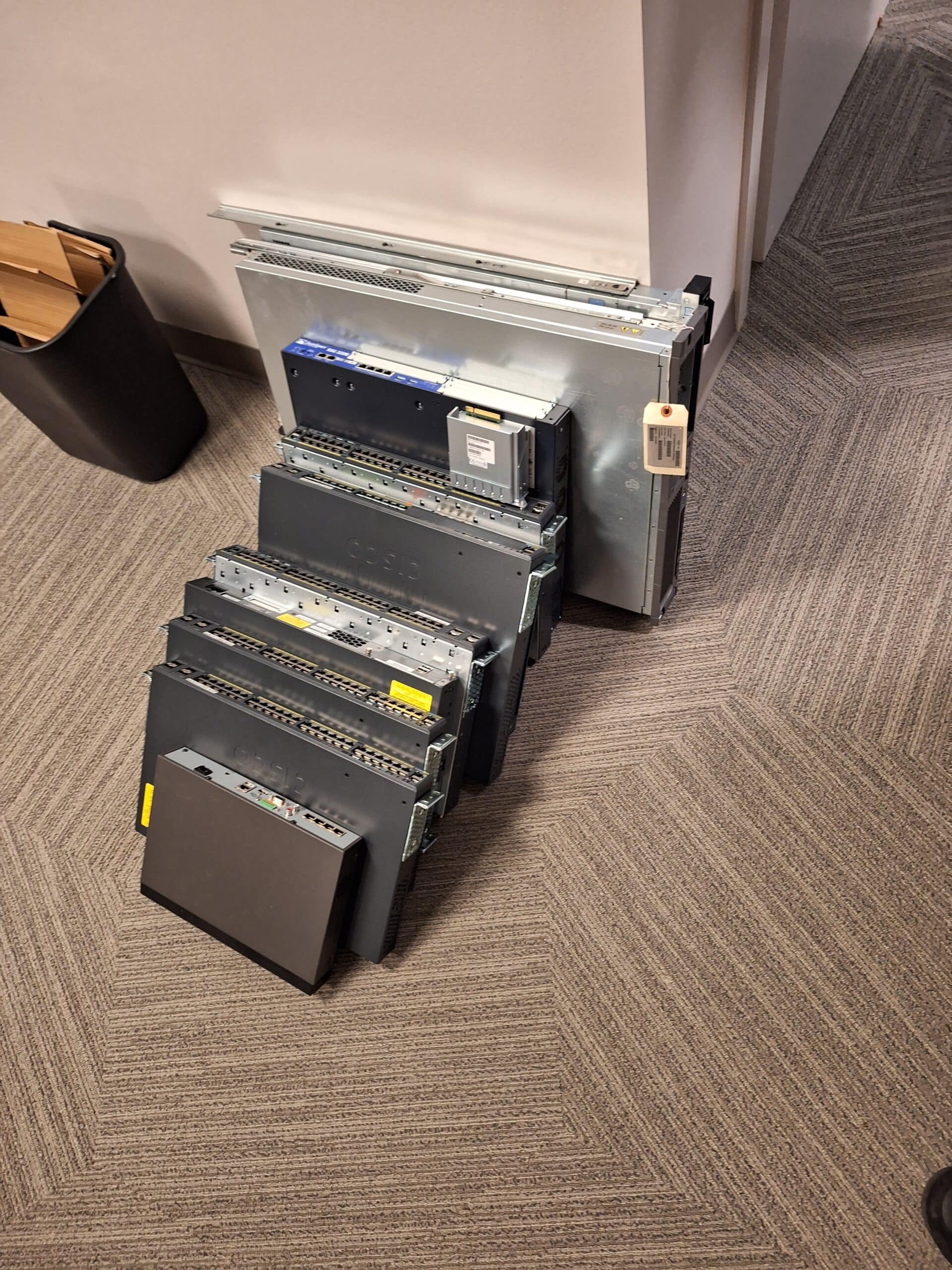In today’s fast-paced and ever-evolving technological landscape, businesses must frequently update and replace their IT equipment to remain competitive. However, disposing of this equipment poses significant challenges, as improper disposal can lead to environmental harm, data breaches, and legal consequences. Therefore, it is crucial for organizations to have a comprehensive IT equipment disposal plan in place that prioritizes environmentally sustainable, secure, and legal disposal practices.
This article will explore the various considerations that businesses must take into account when dealing with IT equipment disposal, including regulatory compliance, data security, and sustainability.
Get Rid of Old Office Equipment in a Safe And Efficient Manner
The first consideration when disposing of IT equipment is ensuring compliance with relevant regulations and laws. Businesses must adhere to federal, state, and local laws governing the disposal of electronic waste, such as the Environmental Protection Agency’s (EPA) Resource Conservation and Recovery Act (RCRA) and the Waste Electrical and Electronic Equipment (WEEE) directive in the European Union. Noncompliance can result in hefty fines and legal consequences.
Proper data destruction is critical when disposing of IT equipment. Businesses must ensure that all sensitive data is securely erased or destroyed to prevent data breaches and protect confidential information. This includes wiping hard drives, deleting files, and physically destroying hard drives or other storage devices.
3. Sustainability
IT equipment disposal can have significant environmental impacts if not handled properly. Businesses should prioritize sustainable practices, such as recycling and refurbishing equipment, to reduce waste and minimize their ecological footprint. Recycling also helps companies comply with environmental regulations and demonstrates their commitment to corporate social responsibility.
4. Partner with a Professional IT Equipment Disposal Company
Partnering with a reputable IT equipment disposal company can help businesses navigate the complex legal and environmental landscape of IT equipment disposal. Professional disposal companies have the expertise and resources to ensure regulatory compliance, data security, and sustainability. They can also handle the logistics of equipment removal, transportation, and disposal.
5. Hazards of E-Waste
It is crucial to understand the hazards of e-waste and the potential harm it can cause to the environment and human health. E-waste contains toxic chemicals like lead, mercury, and cadmium that can leak into the soil and water if not disposed of properly. These chemicals can cause serious health problems such as cancer, birth defects, and neurological damage. Therefore, businesses must handle e-waste with care and follow proper disposal protocols.
6. Proper Documentation
It is essential to maintain proper documentation of IT equipment disposal to demonstrate regulatory compliance and protect against legal liabilities. Documentation should include details of the equipment disposed of, the method of disposal, and any certificates of destruction or recycling. This can also help businesses track their environmental impact and demonstrate their commitment to sustainability.
Why It’s Better to Handle Disposal in the Correct Fashion
Handling IT equipment disposal correctly is crucial for several reasons:
1. Legal Compliance
Many countries have strict regulations governing the disposal of e-waste. Failure to comply with these regulations can result in hefty fines and legal liabilities.
E-waste contains hazardous chemicals that can pollute the environment if not disposed of properly. By handling disposal correctly, businesses can reduce their environmental impact and protect the planet.
3. Data Security
IT equipment may contain sensitive data that must be securely erased before disposal. Failure to do so can result in data breaches, which can damage a business’s reputation and lead to legal liabilities.
4. Resource Conservation
IT equipment contains valuable resources that can be recycled and reused. By handling disposal correctly, businesses can help conserve these resources and reduce their carbon footprint.
Overall, correctly handling IT equipment disposal is essential for regulatory compliance, environmental protection, data security, and resource conservation. By doing so, businesses can demonstrate their commitment to sustainability and protect against legal liabilities.

Conclusion
Dealing with IT equipment disposal is a crucial aspect of any organization’s sustainability efforts. It is important to dispose of old or unused equipment in an environmentally responsible way to minimize the impact on the environment. The disposal process should be carefully planned and executed, taking into consideration the security of data and ensuring compliance with relevant regulations. By adopting a responsible approach to IT equipment disposal, organizations can not only reduce their environmental footprint but also contribute to building a better future.
If you need help with electronics recycling, contact Beyond Surplus. We offer convenient, secure, and cost-effective IT equipment disposal and electronics recycling. Let us help you responsibly get rid of your old electronics today!


